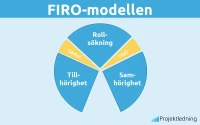The Dawn of Instant Understanding: Are We Ready?
Imagine a world where knowledge flows as freely as thought itself. Where complex concepts are grasped in moments, and the barriers to learning crumble before us. This isn't science fiction, folks. It's the potential future unlocked by the latest breakthroughs in neural interfaces and cognitive enhancement. When I first started seeing the buzz, I thought it was just another overhyped tech promise, but then I dug deeper, and honestly? It blew my mind.
We're not just talking about faster internet speeds, we're talking about a fundamental shift in how we acquire and process information. Think of it like this: for centuries, learning has been like trying to drink from a firehose. We're bombarded with information, but our brains can only absorb so much, so fast. But what if we could widen the hose? What if we could equip our minds with tools to handle the deluge, to extract the pure, clean water of knowledge with unprecedented efficiency? That's the promise of this new wave of cognitive technology.
The Coming Cognitive Revolution
The core idea revolves around direct interfaces with the brain, bypassing the limitations of traditional learning methods. Instead of reading, memorizing, and painstakingly piecing together information, we could potentially access knowledge directly, almost like downloading a program into our minds. Now, I know what you're thinking: "Sounds like The Matrix." And yeah, there are echoes of that, but the reality is both more subtle and, frankly, more exciting.

One of the most promising avenues is the development of non-invasive neural stimulation techniques. By gently stimulating specific brain regions, scientists are finding ways to enhance memory, focus, and even creative problem-solving. It's like giving your brain a tune-up, optimizing its performance for peak efficiency. We're talking about a potential paradigm shift in education, where learning becomes a personalized, accelerated, and deeply engaging experience. What if, instead of years of study, complex subjects became accessible in a matter of weeks or even days? What if the playing field was leveled, and everyone had the opportunity to reach their full intellectual potential?
Of course, with such a powerful technology comes immense responsibility. We need to carefully consider the ethical implications, the potential for misuse, and the need for equitable access. It's crucial that we develop robust safeguards to prevent cognitive enhancement from becoming another tool for exacerbating social inequalities. But, I also see comments online that suggest this tech might be used to control people's minds, or that it would be used by governments. I think this is a bit of an overblown fear, and that we need to approach this technology with cautious optimism.
But then again, consider the historical precedent. When the printing press was invented, it democratized access to information and sparked the Renaissance. This could be the next printing press moment, but instead of just democratizing information, it democratizes intelligence itself. The speed of this is just staggering—it means the gap between today and tomorrow is closing faster than we can even comprehend.










